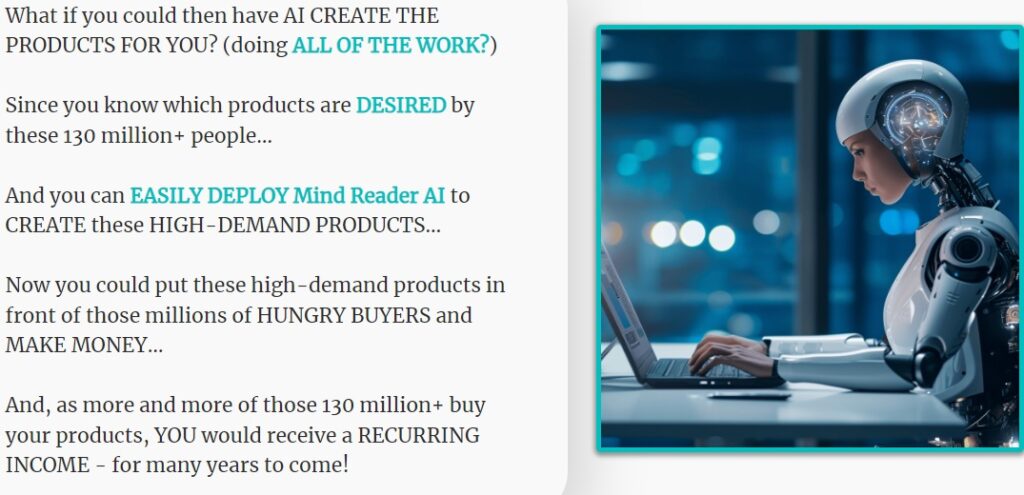
Mind Reader AI: Revolutionizing the Future of Cognitive Technology
Introduction of Mind Reader AI:
In the realm of artificial intelligence, few innovations have captured the imagination quite like Mind Reader AI. Developed by a team of brilliant minds at the forefront of cognitive computing, Mind Reader AI represents a monumental leap forward in the convergence of neuroscience, machine learning, and human-computer interaction. In this review, we delve into the intricacies of this groundbreaking technology, exploring its capabilities, applications, and potential implications for society.
Understanding of Mind Reader AI:
At its core, Mind Reader AI is a sophisticated system designed to interpret and analyze human thoughts, emotions, and intentions with unprecedented accuracy. Leveraging advanced algorithms and neural networks, it has the remarkable ability to decipher patterns in brain activity, translating them into actionable insights in real-time. Unlike traditional AI systems that rely solely on external inputs, Mind Reader AI taps into the subconscious mind, unlocking a treasure trove of information that was previously inaccessible.

>> Click instant access and other details<<
Applications Across Industries of Mind Reader AI:
The potential applications of Mind Reader AI:
are virtually limitless, spanning across a multitude of industries and sectors. In healthcare, it holds the promise of revolutionizing the diagnosis and treatment of mental health disorders by providing clinicians with invaluable insights into patients’ cognitive states. From predicting depressive episodes to identifying early signs of neurological diseases, its impact on mental healthcare could be transformative.
In marketing and advertising:
It offers unparalleled opportunities for consumer research and targeted advertising. By analyzing subconscious responses to stimuli, it enables advertisers to tailor campaigns with remarkable precision, maximizing engagement and conversion rates. Furthermore, it has the potential to personalize user experiences on a level previously thought impossible. leading to more meaningful interactions between brands and consumers.
In education:
, Mind Reader AI could reshape the way we learn and teach by providing educators with insights into students’ cognitive processes and learning preferences. By adapting curriculum and instructional strategies to individual need. It has the potential to enhance student outcomes and promote lifelong learning.

>> Click instant access and other details<<
Ethical Considerations and Privacy Concerns
As with any technology that delves into the realm of human consciousness, It raises profound ethical considerations and privacy concerns. The prospect of machines accessing and interpreting our innermost thoughts raises questions about autonomy, consent, and the potential for abuse. Safeguarding against unauthorized access and misuse of this technology will be paramount to ensuring its responsible deployment.
The Future of Cognitive Computing:
In conclusion, It represents a watershed moment in the evolution of artificial intelligence. Its ability to decipher human thoughts and emotions opens up a myriad of possibilities for innovation. And advancement across various domains. However, with great power comes great responsibility. And it is imperative that we approach the development and deployment of this technology with careful consideration of its ethical implications. As we venture into this uncharted territory, one thing is certain: the future of cognitive computing will be defined by our ability to harness the potential of it while safeguarding the sanctity of the human mind.
In the grand tapestry of technological progress:
It stands as a testament to the boundless ingenuity of the human spirit. As we continue to unlock the mysteries of the mind, may we do so with humility, empathy. And a steadfast commitment to the greater good.
